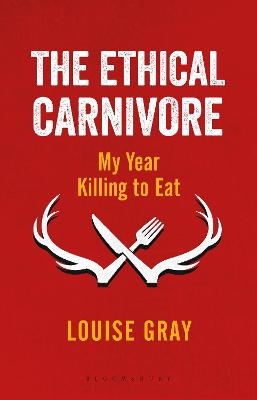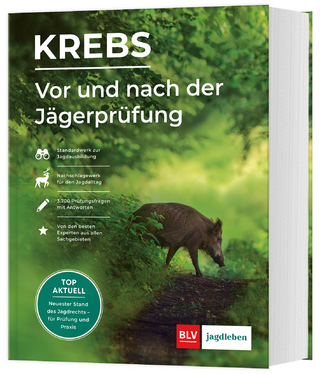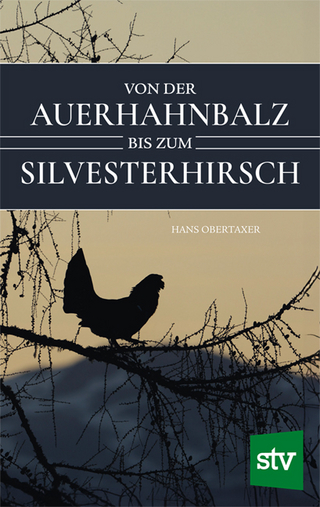
The Ethical Carnivore
Bloomsbury Natural History (Verlag)
978-1-4729-3554-0 (ISBN)
- Titel ist leider vergriffen;
keine Neuauflage - Artikel merken
Shortlisted for the 2017 Fortnum & Mason Food Book of the Year
A BBC Radio 4 Food Programme Book of the Year 2016
A Guardian Book of the Year 2016
We should all know exactly where our meat comes from. But what if you took this modern-day maxim to its logical conclusion and only ate animals you killed yourself?
Louise Gray decides to be an ethical carnivore and learn to stalk, shoot and fish. Starting small, Louise shucks oysters and catches a trout. As she begins to reconnect with nature, she befriends countrymen and women who can teach her to shoot pigeons, rabbits and red deer.
Louise begins to look into how meat is processed, including the beef in our burgers, cheap chicken, supermarket bacon and farmed fish. She investigates halal slaughter and visits abattoirs to ask whether new technology can make eating meat more humane.
Delving into alternative food cultures, Louise finds herself sourcing roadkill and cooking a squirrel stir-fry, and she explores eating other sources of protein like in vitro meat, insects and plant-based options.
With the global demand for meat growing, Louise argues that eating less meat should be an essential part of fighting climate change for all of us. Her writing on nature, food and the environment is full of humour, while never shying from the hard facts. Louise gets to the heart of modern anxieties about where our meat comes from, asking an important question for our time – is it possible to be an ethical carnivore?
Louise Gray is a freelance writer based in Scotland. She trained with The Press Association and was a staff writer for The Scotsman. From 2008 to 2013 she was Environment Correspondent for The Daily Telegraph. Louise specialises in writing about food, farming and climate change. In recent years she has written for The Sunday Times, Scottish Field, the Guardian and The Spectator, among others. She has also appeared on BBC television and radio. Louise is passionate about environmental issues, increasingly focusing on how individuals can make a difference through the choices they make, such as the food we eat. The Ethical Carnivore is her first book. @loubgray / louisebgray.com
1. Blaze - Rabbit: Louise sets out on her journey to only eat what she kills herself and explains her reasons for doing so. Her first kill is a disaster. But it teachers Louise the importance of respecting animals and the challenges she will face. Recipe - WWII Rabbit curry 2. Pearls - Oyster: Louise explores the ethics of eating shellfish. Do they feel pain? Or is the state of the ocean a more important factor considering ethics? Recipe - Boozy mussels 3. Brownies - Trout: Louise goes fishing with George Monbiot and learns about fly-fishing. She learns about the connection between fishermen and the environment. Recipe - Brown trout wrapped in wild garlic 4. Game Bird - Pheasant: Louise tries game shooting. She is fascinated by the culture and tradition of it. But can it ever be ethical? Recipe - Pheasant in green butter 5. Minions - Piglets: Louise witnesses her first slaughterhouse and is shocked and upset. Recipe - Pig's heid terrine 6. Soays - Sheep: Louise explores the history of farming and the work of farmers to raise animals well. She shoots and butchers a wild sheep. Recipe - Lamb's liver pizza 7. Gobby Teens - Veal: Louise talks to the RSPCA about the history of animal slaughter. Recipe - Veal meatballs 8. Grown Ups - Cow: Louise learns how technology and science today is making the slaughter of cattle more humane. Recipe - Tongue sandwiches 9. Colin - Chicken: Louise visits a chicken farm and questions the move of animals into industrial agriculture. She kills and cooks a chicken. Recipe - Chicken soup for the soul 10. Vermin - Squirrel: Louise learns how to source meat as road kill. Is this more ethical? Recipe - Squirrel satay 11. Swine - Pig: Louise witnesses the ultimate industrialisation of animal farming in Denmark. Recipe - Veggie sausages 12. Sharks - Cod: Louise goes fishing for mackerel and cod. Can we continue to eat wild fish whilst protecting the oceans? Recipe - Cod roe on toast/Mackerel with gooseberry sauce 13. The Leaper - Salmon: Louise explores the growth of aquaculture. Is this a more ethical way to eat fish? Recipe - Kelp seaweed stir-fry 14. Damh - Stag: Louise kills a stag. What has she learned about women hunting animals for food. Recipe - Stag heart stew 15. Curious Vegan - Vegetables: Louise looks back on her year and considers the wider picture of why we eat meat and how we might as a society go forward. Recipe - Philosophical humus
| Erscheinungsdatum | 07.09.2016 |
|---|---|
| Zusatzinfo | 18 black and white artworks |
| Verlagsort | London |
| Sprache | englisch |
| Maße | 135 x 216 mm |
| Gewicht | 346 g |
| Themenwelt | Sachbuch/Ratgeber ► Freizeit / Hobby ► Angeln / Jagd |
| Sozialwissenschaften ► Soziologie | |
| ISBN-10 | 1-4729-3554-3 / 1472935543 |
| ISBN-13 | 978-1-4729-3554-0 / 9781472935540 |
| Zustand | Neuware |
| Haben Sie eine Frage zum Produkt? |
aus dem Bereich


